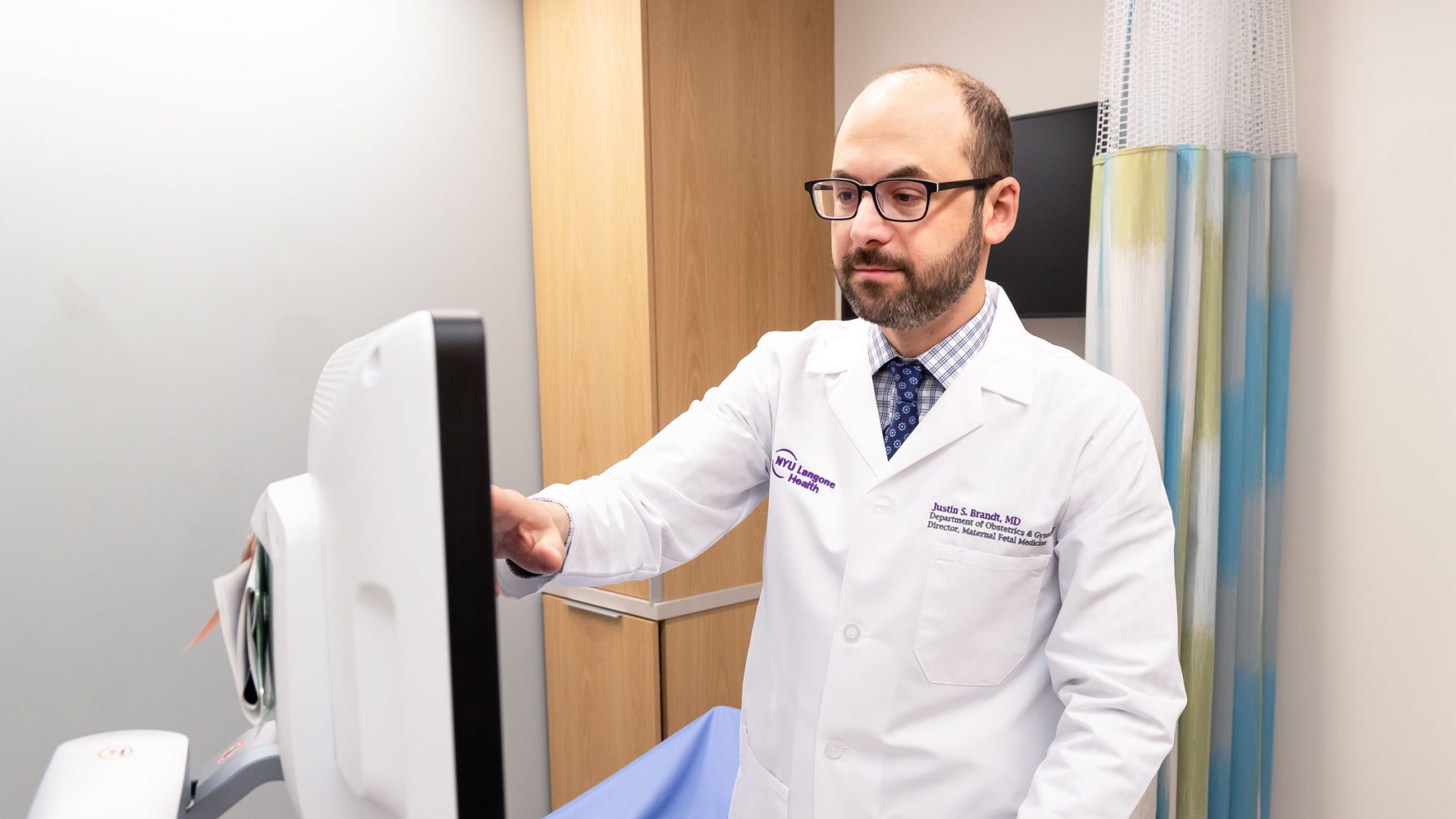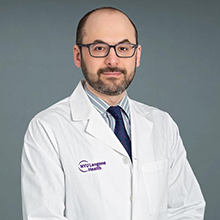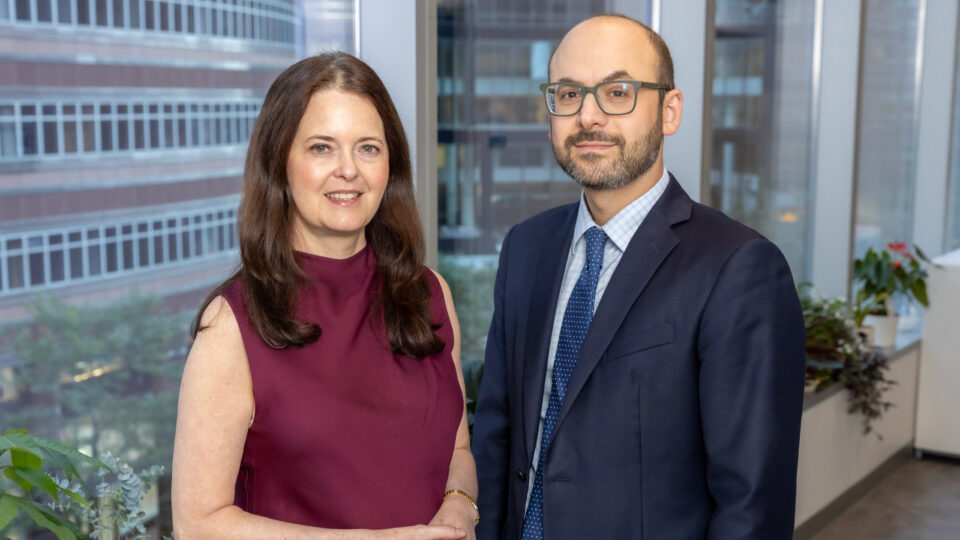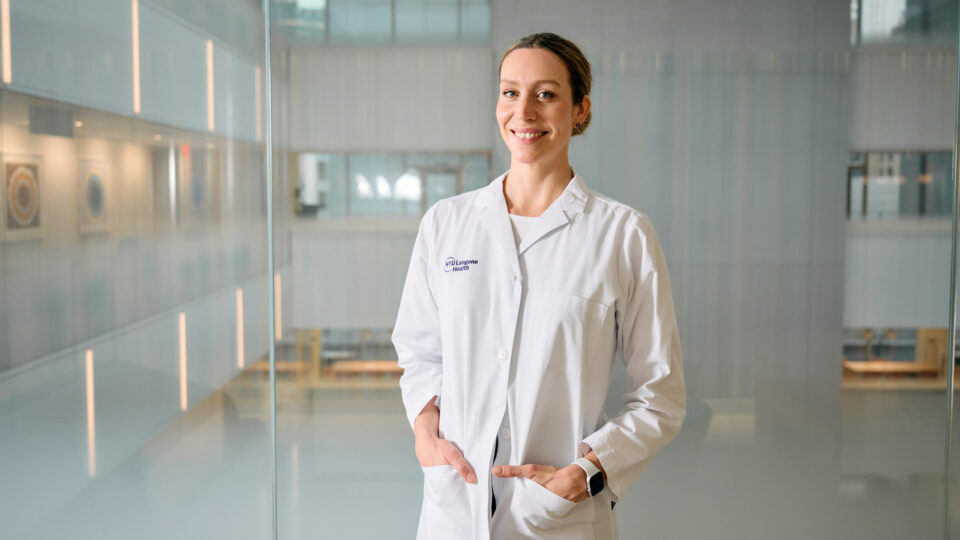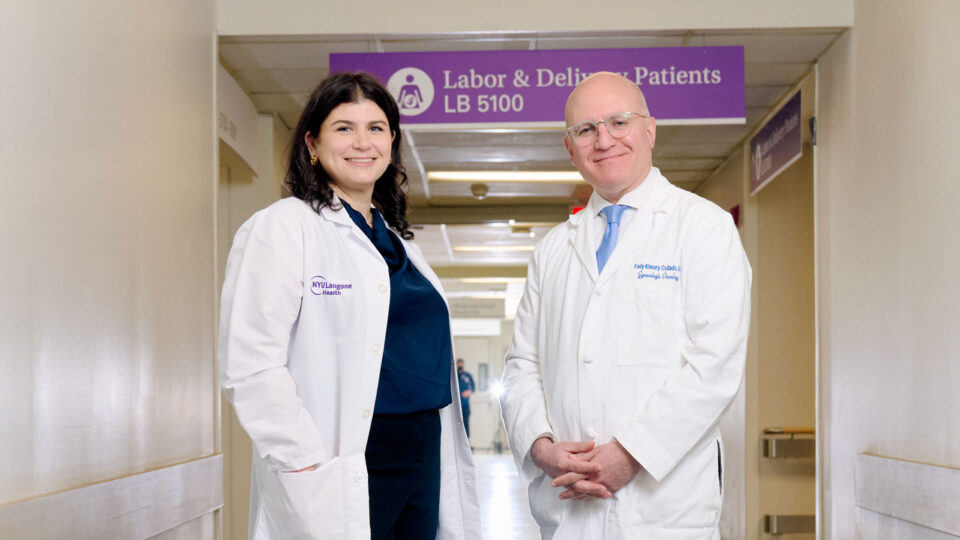Justin S. Brandt, MD, director of the Division of Maternal–Fetal Medicine at NYU Langone Health, is a national leader in advancing obstetric care that supports individuals with diverse gender identities. He previously served on the Diversity and Inclusion in the Workforce Committee for the Society of Maternal and Fetal Medicine, developing guidelines and shaping best practices for inclusive care.
Here, Dr. Brandt shares insights from his years of experience supporting transgender and gender-diverse patients through pregnancy.
A Call to Do Better
Physician Focus: What put you on the path of working with transgender and gender-diverse patients?
Dr. Brandt: Raising a child who is gender diverse opened my eyes to some of the challenges faced by people who are not cisgender. As an obstetrician and maternal–fetal medicine subspecialist, I realized that there are even more challenges in front of transgender men and gender-diverse people during pregnancy. Pregnancy tends to be a very gendered process, but it doesn’t have to be.
I realized that most of the care I was providing was focused on cisgender and heterosexual people. As a result of often-incorrect assumptions, I was not creating a welcoming environment for other people with birthing potential. As I learned more about the unique needs of transgender and gender-diverse people, I knew I could do better. I knew that my field of medicine could do better. And I’ve been motivated to work towards this goal—of providing affirming care for all people—for the last 10 years.
Defining Affirming Care
Physician Focus: What does affirming pregnancy care look like for transgender and gender-diverse people?
Dr. Brandt: So much of the care that we provide for people who have diverse gender identities in pregnancy is the same as the care we provide to cisgender people. However, there are important differences too.
So many people with diverse identities have had negative experiences in a traditional healthcare setting. As a result, many do not want to come to our offices for care. At NYU Langone, we are working to change that. We have worked to ensure that every member of our team is equipped to care for people with diverse identities. Through trainings, as well as changes in our physical practice, we are creating clinical spaces that are more welcoming.
“Affirming care is care that responds to an individual’s unique needs and desires.”
Justin S. Brandt, MD
Affirming care is care that responds to an individual’s unique needs and desires. If someone is going to be pregnant and feels like a father or some other nonmother identity, we want to affirm their unique identity during pregnancy.
Communication Is Critical
Physician Focus: When it comes to obstetric care, how can healthcare providers foster a welcoming and inclusive environment?
Dr. Brandt: In order to create an inclusive environment, we have to listen to our patients. When patients speak about their prior experiences and their goals for pregnancies, we must listen. This is how we develop care plans that are unique for each person. We then take those care plans and follow them—from the outpatient setting, where prenatal care starts, to labor and delivery, and ultimately to our postpartum floor, which we inclusively call the family care suite.
Another part of building an inclusive environment is making sure that people know that we want to care for all people at NYU Langone. Our clinical team at Tisch Hospital and across our health system has the skills and the desire to care for everyone who can get pregnant.
Physician Focus: Gender identity is a very personal topic; patients may find it hard to share their pregnancy care needs. As a provider, how do you create space for patients to discuss their desires during pregnancy?
Dr. Brandt: I think communication is key here. It’s so critical that patients have the experiences that they’re looking for, experiences that affirm their unique identities. But providers can’t know a patient’s goals or desires for pregnancy if there isn’t open communication. I’m often encouraging patients to talk with me—and their other doctors—about what they’re looking for in their birthing experience.
“I know this can be hard for many. But I also know that we can find ways to allow people to be their true selves during pregnancy.”
A man who is transgender may have spent much of his life moving away from the gender associated with the sex he was assigned at birth. For some people, being pregnant or just coming to the obstetrician can be triggering. As an affirming provider, I know this can be hard for many. But I also know that we can find ways to allow people to be their true selves during pregnancy.
The Impact on Patients
Physician Focus: Can you share an example of a compassionate and inclusive interaction with a patient where the approach noticeably improved the patient’s care and overall experience?
Dr. Brandt: I just recently cared for someone with a nonbinary identity. The patient told me about their challenges trying to get pregnant and navigating doctors who didn’t understand them. I built trust in small ways—I asked questions about their gender identity, their pronouns, and their goals. At the end of the meeting, the patient told me that they felt heard for the first time in a doctor’s office. They didn’t think it was possible to have this type of experience with doctors.
It was one of the first times in this person’s life that a healthcare provider had the knowledge to care for their unique needs and to help them achieve the healthcare experience that they were looking for. It was a very rewarding experience for me and one that I look forward to sharing with other patients as well.
A Commitment to Inclusivity
Physician Focus: What are we not currently addressing that could make obstetrics and gynecology a more inclusive space?
Dr. Brandt: Obstetrics and the birthing process can be highly gendered. I think one of the great obstacles for us as obstetricians is making people who don’t identify as women feel comfortable coming to us for care. This means changing the way we engage with patients at the front desk. This means changing the way we engage with patients when we provide care. This means providing care that allows people with nonbinary identities to have a birthing experience that affirms their identities.
“One of the great obstacles for us as obstetricians is making people who don’t identify as women but who have the potential to get pregnant feel comfortable coming to us for care.”
NYU Langone has one of the best medical schools in the country, and we’re teaching the next generation of physicians how to provide affirming care, how to show respect for patients with diverse needs, and how to provide world-class care for all people. I am honored to be part of this academic team.
Another area that comes to mind is research. Traditional research has focused on people with binary identities—women and men. There’s a lot of research looking at obstetrical outcomes of women with various risk factors for pregnancy complications. This type of research has excluded people with nonbinary identities who get pregnant.
The obstetric research community is starting to realize how to perform research that captures all people with birthing potential. In time, and with the adoption of inclusive research practices, we will be able to provide better care for all people and to address the unique needs of people with birthing potential who are women, men, and other identities.


